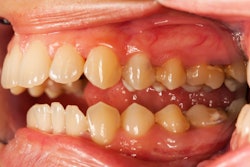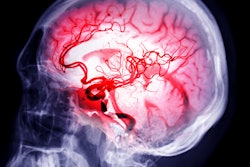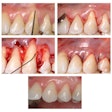Oral inflammation may be linked to a higher risk of cognitive decline, with chronic inflammation acting as a potential shared pathway for the condition. This study was published recently in the Journal of Periodontology.
Furthermore, older adults with mild cognitive impairment (MCI) and Alzheimer’s disease (AD) may show poorer periodontal health, the authors wrote.
“Oral inflammatory markers may indicate an increased risk for cognitive decline, especially in cases of moderate or severe periodontal disease,” wrote the authors, led by Kåre Buhlin of the University of Helsinki in Finland (J Periodontol, November 10, 2025).
Recent studies have examined the link between periodontitis and cognitive decline, suggesting gum inflammation and caries as possible contributing factors. This study aimed to explore the relationship between inflammatory markers in saliva, plasma, and cerebrospinal fluid (CSF) and both cognitive decline and periodontal disease.
This case-control study involved 230 participants ages 50 to 80, including patients with AD, MCI, subjective cognitive decline (SCD), and healthy controls. Each participant completed the Mini-Mental State Examination (MMSE) and received an oral evaluation assessing their oral mucosa, caries, and gum health, they wrote.
The periodontal exam measured oral hygiene, probing pocket depth (PPD), and bleeding on probing. Blood, saliva, and CSF samples were collected alongside clinical evaluations. Levels of inflammatory cytokines, including interleukin (IL)-1β, IL-8, IL-10, IL-17A, and tumor necrosis factor-alpha (TNF-α), were measured using multiplex immunoassays.
MCI patients showed higher salivary levels of IL-10 (p = 0.013), IL-17A (p = 0.033), and IL-1β compared to controls and SCD patients. Plasma IL-8 levels were elevated in SCD, MCI, and AD groups compared to controls (p < 0.001), while MCI patients had higher IL-8 (p = 0.032) but lower TNF-α (p = 0.0004) than SCD patients, they wrote.
In CSF, IL-1β (p = 0.04) and IL-17A (p = 0.034) were lower in AD compared to MCI and controls, and MMSE scores correlated positively with IL-1β and IL-17A in CSF but negatively with IL-8 in plasma and CSF. Participants with PPD ≥ 6 mm showed increased IL-8 in their saliva (p = 0.027) and plasma (p < 0.001) and higher TNF-α in plasma (p = 0.041) while those same participants had lower CSF levels of IL-1β (p = 0.005), IL-17A (p = 0.002), and TNF-α (p = 0.008).
However, the study had limitations, including the design of the study, which limited causal inferences. Future research is needed to investigate how specific inflammatory pathways and periodontal inflammation contribute to cognitive decline, the authors wrote.
“Early periodontal intervention and maintaining oral health may contribute to cognitive well-being,” Buhlin and colleagues concluded.




















